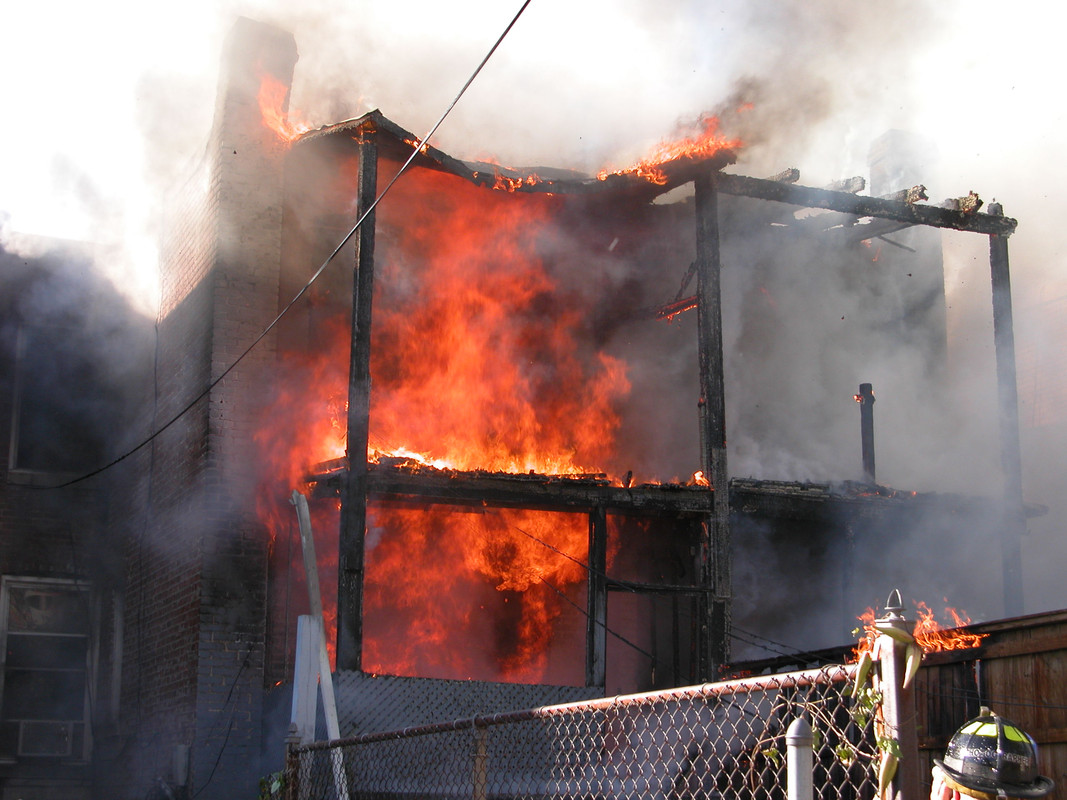Go  | New  | Find  | Notify  | Tools  | Reply  |  |
| Three Generations of Service  |
Neighbor/Acquaintance/Sorta Friend has a garage just up the road from me. Wheeler-Dealer Horse Trader and Shade Tree Mechanic. Always has a couple of projects going on, old cars and trucks (30's to 60's) etc. He was grinding on something a couple-three weeks ago and the sparks got into a pile of greasy/oily rags and POOF! He tried to put it out and wound up with 2nd degree burns over 25% of his body, spent a couple weeks in the hospital. Garage and two vehicles are a total loss. He just called me and asked me to go through the remains and see if any of his tools are salvageable. I understand the urge to try and save your stuff, but stuff is replaceable. You...not so much. I have a covered metal can my rags go in and it gets emptied every week on trash pick up day. Be careful when following the masses. Sometimes the M is silent. | ||
|
| My other Sig is a Steyr.  |
Wow! Hope he makes a speedy recovery. | |||
|
| Banned for acting like an asshole |
Paul, the last place oily or solvent covered rags should go is in a covered can. Certain oils are self combustible and when wet rags are placed in small closed environment the heat has nowhere to dissipate to and will become hot enough inside the can to ignite. I recommend hanging them outside to dry completely or saturating them with a garden hose to dissolve the oils as much as possible. | |||
|
| Member |
A simple fire extinguisher might have prevented that . I have one hanging next to my workbench . | |||
|
| Member |
I second that. 10-lb. ABC extinguisher mounted on the wall by the walk-door between garage and house. Another 10-lb. ABC in the kitchen. Another 10-lb. ABC in the camper. 5-lb. ABC in each vehicle. Over the years I have put out several fires in automobiles, one in a camper during elk season, one at a house construction site, and a neighbors shed. Retired holster maker. Retired police chief. Formerly Sergeant, US Army Airborne Infantry, Pathfinders | |||
|
| Ammoholic |
Rinsing and hanging out is all well and good. A metal pail with a snug metal lid prevents oxygen from entering. If something manages to self combust in a sealed metal can, the fire won’t last long before starving for lack of oxygen. | |||
|
| Not as lean, not as mean, Still a Marine  |
The spontaneous combustion is caused from the oils oxidizing, a tight fitting lid will prevent that from occurring. Even better if you have water in the bucket to displace the air. From the Bend Oregon Fire Department: "To properly and safely dispose of oily rags, Bend Fire Department recommends the following steps: - Use a container with a tight fitting lid. A metal can is preferable but a plastic can or zip lock bag can work if nothing else is available. - Place soiled and used rags inside and then fill the rest the way with water, seal the top and do not open it. This will prevent the oils from oxidizing, and thus keeping the rags from heating up and igniting. - Contact your local garbage disposal company for their policy on disposal of the can and contents. Some companies will permit disposal in regular household trash" https://www.bendoregon.gov/home/showdocument?id=16299 I shall respect you until you open your mouth, from that point on, you must earn it yourself. | |||
|
| Banned for acting like an asshole |
Filling the can with water would be the key. Here's little house fire I went to a number of years ago because the homeowner didn't sufficiently close the 1 gallon paint can lid after he put a bunch of rags soaked with linseed oil in it. The second pic shows me on the stretcher about to be taken to the burn unit for the next several weeks because I was burned over 20% of my body when myself and 3 other guys got trapped on the second floor while trying to put it out. To each his own but I can assure you you'll never catch me putting rags in a can....   | |||
|
Member |
A Justrite oil rag waste container. Way cheaper than a new building or medical/funeral costs. Justrite waste can for combustibles  Demand not that events should happen as you wish; but wish them to happen as they do happen, and you will go on well. -Epictetus | |||
|
| Technically Adaptive |
Notice the can label: "Empty Every Night", into what, regular trash can?. | |||
|
Member |
A dumpster outside the building. A dumpster fire is concerning. A building fire is tragic. The point of the dedicated can is that it decreases the chances of combustion by limiting oxygen; and the use of a foot-actuated, automatic lid ensures the lid remains in place. If there is a fire, there is a decreased chance that it will propagate. Of course the label will say to empty nightly. That is the safest way to go. Whether people will is less likely. However, that applies to any type of rag receptacle one uses, so all the better to use one that decreases the risk of fire, or is better suited to contain one, should it occur. Once rag waste is spread out in a larger dumpster, it is unlikely that heat would build up enough to combust. The label certainly covers the can manufacturer of any liability. Kinda like Ruger stamping all the crap they do right on a gun barrel. Demand not that events should happen as you wish; but wish them to happen as they do happen, and you will go on well. -Epictetus | |||
|
| Member |
Oily rags need to be in an enclosed container. Common industrial wisdom. Don't leave them in an open container. Don't wait a week until the trash pickup. The container prevents spread, prevents further combustion. I've worked in a lot of shops; any worth their weight in wet salt used a covered container for rags, including all recycled rags and towels. For my own use, I prefer paper towels and they don't stay indoors. Blue absorbent paper towels work much better than cloth for many applications. | |||
|
| Thank you Very little  |
don't park the dumpster beside the building.... | |||
|
| Smarter than the average bear |
I didn’t realize that oily rags were such a problem. I think a burn can or fire pit might be the best solution. Light it and let it burn in a safe space. No build up, and nothing left to combust. | |||
|
| Powered by Social Strata |
| Please Wait. Your request is being processed... |
|
© SIGforum 2025